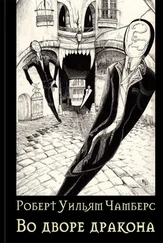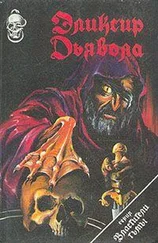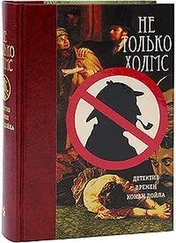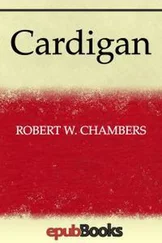Роберт Чамберс - In Search of the Unknown
Здесь есть возможность читать онлайн «Роберт Чамберс - In Search of the Unknown» весь текст электронной книги совершенно бесплатно (целиком полную версию без сокращений). В некоторых случаях можно слушать аудио, скачать через торрент в формате fb2 и присутствует краткое содержание. Год выпуска: 2014, Издательство: epubBooks Classics, Жанр: Фантастика и фэнтези, на английском языке. Описание произведения, (предисловие) а так же отзывы посетителей доступны на портале библиотеки ЛибКат.
- Название:In Search of the Unknown
- Автор:
- Издательство:epubBooks Classics
- Жанр:
- Год:2014
- ISBN:нет данных
- Рейтинг книги:3 / 5. Голосов: 1
-
Избранное:Добавить в избранное
- Отзывы:
-
Ваша оценка:
- 60
- 1
- 2
- 3
- 4
- 5
In Search of the Unknown: краткое содержание, описание и аннотация
Предлагаем к чтению аннотацию, описание, краткое содержание или предисловие (зависит от того, что написал сам автор книги «In Search of the Unknown»). Если вы не нашли необходимую информацию о книге — напишите в комментариях, мы постараемся отыскать её.
In Search of the Unknown — читать онлайн бесплатно полную книгу (весь текст) целиком
Ниже представлен текст книги, разбитый по страницам. Система сохранения места последней прочитанной страницы, позволяет с удобством читать онлайн бесплатно книгу «In Search of the Unknown», без необходимости каждый раз заново искать на чём Вы остановились. Поставьте закладку, и сможете в любой момент перейти на страницу, на которой закончили чтение.
Интервал:
Закладка:
"She turned her blue eyes to mine. I saw tears sparkling on the curved lashes.
"'Wilhelmina, I love you,' I said again.
"Slowly she raised her hands to my head and held it a moment, looking at me strangely. Then her face grew nearer to my own, her glittering hair fell over my shoulders, her lips rested on mine.
"In that long, sweet kiss the beating of her heart answered mine, and I learned a thousand truths, wonderful, mysterious, splendid; but when our lips fell apart, the memory of what I learned departed also.
"'It was so very simple and beautiful,' she sighed, 'and I—I never saw it. But the Mahatmas knew—ah, they knew that my mission could only be accomplished through love.'
"'And it is,' I whispered, 'for you shall teach me—me, your husband.'
"'And—and you will not be impatient? You will try to believe?'
"'I will believe what you tell me, my sweetheart.'
"'Even about—cats?'
"Before I could reply the farther window opened and a yellow night–cap, followed by the professor, entered from somewhere without. Wilhelmina sank back on her sofa, but the professor needed not to be told, and we both knew he was already busily reading our thoughts.
"For a moment there was dead silence—long enough for the professor to grasp the full significance of what had passed. Then he uttered a single exclamation, 'Oh!'
"After a while, however, he looked at me for the first time that evening, saying, 'Congratulate you, Mr. Kensett, I'm sure,' tied several knots in the cord of his dressing–gown, lighted a cigar, and paid no further attention to either of us. Some moments later he opened the window again and disappeared. I looked across the aisle at Wilhelmina.
"'You may come over beside me,' she said, shyly.
XXV
"It was nearly ten o'clock and our train was rapidly approaching Paris. We passed village after village wrapped in mist, station after station hung with twinkling red and blue and yellow lanterns, then sped on again with the echo of the switch–bells ringing in our ears.
"When at length the train slowed up and stopped, I opened the window and looked out upon a long, wet platform, shining under the electric lights.
"A guard came running by, throwing open the doors of each compartment, and crying, 'Paris next! Tickets, if you please.'
"I handed him my book of coupons, from which he tore several and handed it back. Then he lifted his lantern and peered into the compartment, saying, 'Is monsieur alone?'
"I turned to Wilhelmina.
"'He wants your ticket—give it to me.'
"'What's that?' demanded the guard.
"I looked anxiously at Wilhelmina.
"'If your father has the tickets—' I began, but was interrupted by the guard, who snapped:
"'Monsieur will give himself the trouble to remember that I do not understand English.'
"'Keep quiet!' I said, sharply, in French. 'I am not speaking to you.'
"The guard stared stupidly at me, then, at my luggage, and finally, entering the car, knelt down and peered under the seats. Presently he got up, very red in the face, and went out slamming the door. He had not paid the slightest attention to Wilhelmina, but I distinctly heard him say, 'Only Englishmen and idiots talk to themselves!'
"'Wilhelmina,' I faltered, 'do you mean to say that that guard could not see you?'
"She began to look so serious again that I merely added, 'Never mind, I don't care whether you are invisible or not, dearest.'
"'I am not invisible to you,' she said; 'why should you care?'
"A great noise of bells and whistles drowned our voices, and, amid the whirring of switch–bells, the hissing of steam, and the cries of 'Paris! All out!' our train glided into the station.
"It was the professor who opened the door of our carriage. There he stood, calmly adjusting his yellow night–cap and drawing his dressing–gown closer with the corded tassels.
"'Where have you been?' I asked.
"'On the engine.'
"' In the engine, I suppose you mean,' I said.
"'No, I don't; I mean on the engine—on the pilot. It was very refreshing. Where are we going now?'
"'Do you know Paris?' asked Wilhelmina, turning to me.
"'Yes. I think your father had better take you to the Hôtel Normandie on the Rue de l'Échelle—'
"'But you must stay there, too!'
"'Of course—if you wish—'
"She laughed nervously.
"'Don't you see that my father and I could not take rooms—now? You must engage three rooms for yourself.'
"'Why?' I asked, stupidly.
"'Oh, dear—why, because we are invisible.'
"I tried to repress a shudder. The professor gave Wilhelmina his arm, and, as I studied his ensemble, I thanked Heaven that he was invisible.
"At the gate of the station I hailed a four–seated cab, and we rattled away through the stony streets, brilliant with gas–jets, and in a few moments rolled smoothly across the Avenue de l'Opéra, turned into the Rue de l'Échelle, and stopped. A bright little page, all over buttons, came out, took my luggage, and preceded us into the hallway.
"I, with Wilhelmina on my arm and the professor shuffling along beside me, walked over to the desk.
"'Room?' said the clerk. 'We have a very desirable room on the second, fronting the Rue St. Honoré—'
"'But we—that is, I want three rooms—three separate rooms!' I said.
"The clerk scratched his chin. 'Monsieur is expecting friends?'
"'Say yes,' whispered Wilhelmina, with a suspicion of laughter in her voice.
"'Yes,' I repeated, feebly.
"'Gentlemen, of course?' said the clerk, looking at me narrowly.
"'One lady.'
"'Married, of course?'
"'What's that to you?' I said, sharply. 'What do you mean by speaking to us—'
"'Us!'
"'I mean to me,' I said, badly rattled; 'give me the rooms and let me get to bed, will you?'
"'Monsieur will remember,' said the clerk, coldly, 'that this is an old and respectable hotel.'
"'I know it,' I said, smothering my rage.
"The clerk eyed me suspiciously.
"'Front!' he called, with irritating deliberation. 'Show this gentleman to apartment ten.'
"'How many rooms are there!' I demanded.
"'Three sleeping–rooms and a parlor.'
"'I will take it,' I said, with composure.
"'On probation,' muttered the clerk, insolently.
"Swallowing the insult, I followed the bell–boy up the stairs, keeping between him and Wilhelmina, for I dreaded to see him walk through her as if she were thin air. A trim maid rose to meet us and conducted us through a hallway into a large apartment. She threw open all the bedroom–doors and said, 'Will monsieur have the goodness to choose?'
"'Which will you take,' I began, turning to Wilhelmina.
"'I? Monsieur!' cried the startled maid.
"That completely upset me. 'Here,' I muttered, slipping some silver into her hand; 'now, for the love of Heaven, run away!'
"When she had vanished with a doubtful 'Merci, monsieur!' I handed the professor the keys and asked him to settle the thing with Wilhelmina.
"Wilhelmina took the corner room, the professor rambled into the next one, and I said good–night and crept wearily into my own chamber. I sat down and tried to think. A great feeling of fatigue weighted my spirits.
"'I can think better with my clothes off,' I said, and slipped the coat from my shoulders. How tired I was! 'I can think better in bed,' I muttered, flinging my cravat on the dresser and tossing my shirt–studs after it. I was certainly very tired. 'Now,' I yawned, grasping the pillow and drawing it under my head—'now I can think a bit.' But before my head fell on the pillow sleep closed my eyes.
"I began to dream at once. It seemed as though my eyes were wide open and the professor was standing beside my bed.
Читать дальшеИнтервал:
Закладка:
Похожие книги на «In Search of the Unknown»
Представляем Вашему вниманию похожие книги на «In Search of the Unknown» списком для выбора. Мы отобрали схожую по названию и смыслу литературу в надежде предоставить читателям больше вариантов отыскать новые, интересные, ещё непрочитанные произведения.
Обсуждение, отзывы о книге «In Search of the Unknown» и просто собственные мнения читателей. Оставьте ваши комментарии, напишите, что Вы думаете о произведении, его смысле или главных героях. Укажите что конкретно понравилось, а что нет, и почему Вы так считаете.












